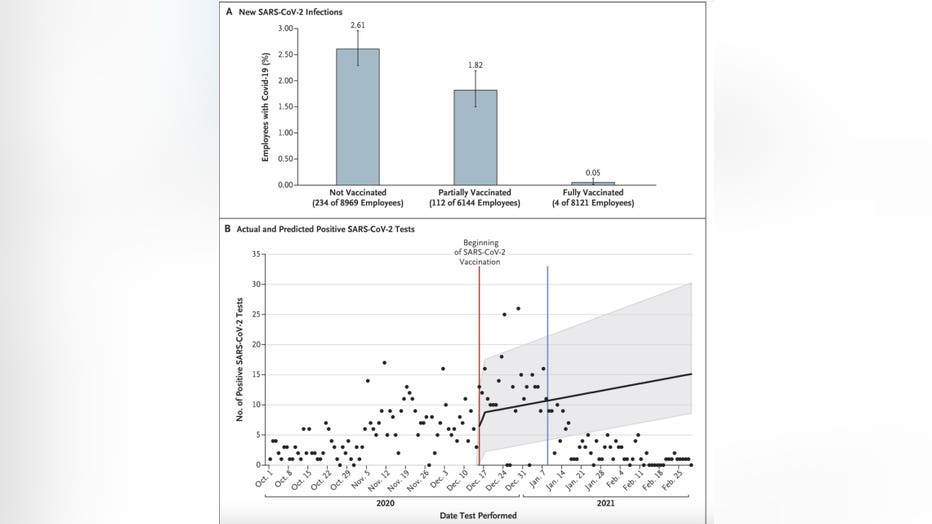Study shows asymptomatic spread drops 98% when everyone is vaccinated
TAMPA, Fla. - With his second shot on the way, Isaac Campbell of Tampa wants to know if that's enough to keep COVID-19 from spreading.
''I am not out and about, it's not like I am going to parties," he said.
It appears, based on a study of about 23,000 workers at UTSW Medical Center, that asymptomatic spread is rare among the fully vaccinated.
Of about 9,000 who did not get shots, there were 234 positive cases. Of 8,000 who were fully vaccinated, there were only four cases, a drop of 98%.

Asymptomatic spread of COVID-19 among vaccinated people compared to unvaccinated people
The black dots on the above graph show how many positive tests there were at UTSW.
Innoculation started December 17 with second shots given January 7.
Cases dropped to almost nil by February.
Medical personnel working in close quarters showed few cases, meaning asymptomatic transmission is rare, says University of South Florida virologist Dr. Michael Teng.
"It is really important now that we have those more transmissible variants out there, it's more important than ever to get transmission down as quickly as possible," said Teng.
Dr. Teng says it's not that a fully vaccinated person can't carry the virus, it's that in stopping you from getting sick, it also appears to stop the amount of virus that replicates, and thus that an infected person puts into the air.
"The immune response the next time you get infected comes up really rapidly, so the virus does not have as good a chance to take hold," Teng explained.
COVID UPDATES: Download the free FOX 13 News app for ongoing coronavirus coverage and live updates
That's good news for those like Lionel Thorold, who is visiting Tampa Bay from Michigan and is eager to know what vaccines mean for everyday life.
"We have our favorite restaurant, we are eating in the car," he said. "You have to stop worrying at some point, you can't worry all the time, you have got to live a life."

